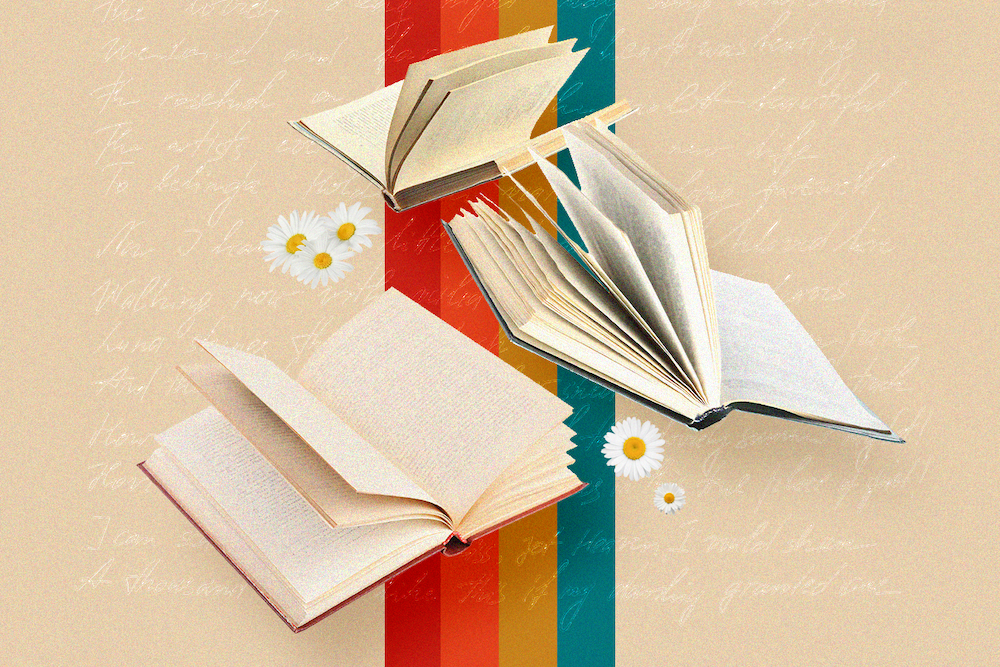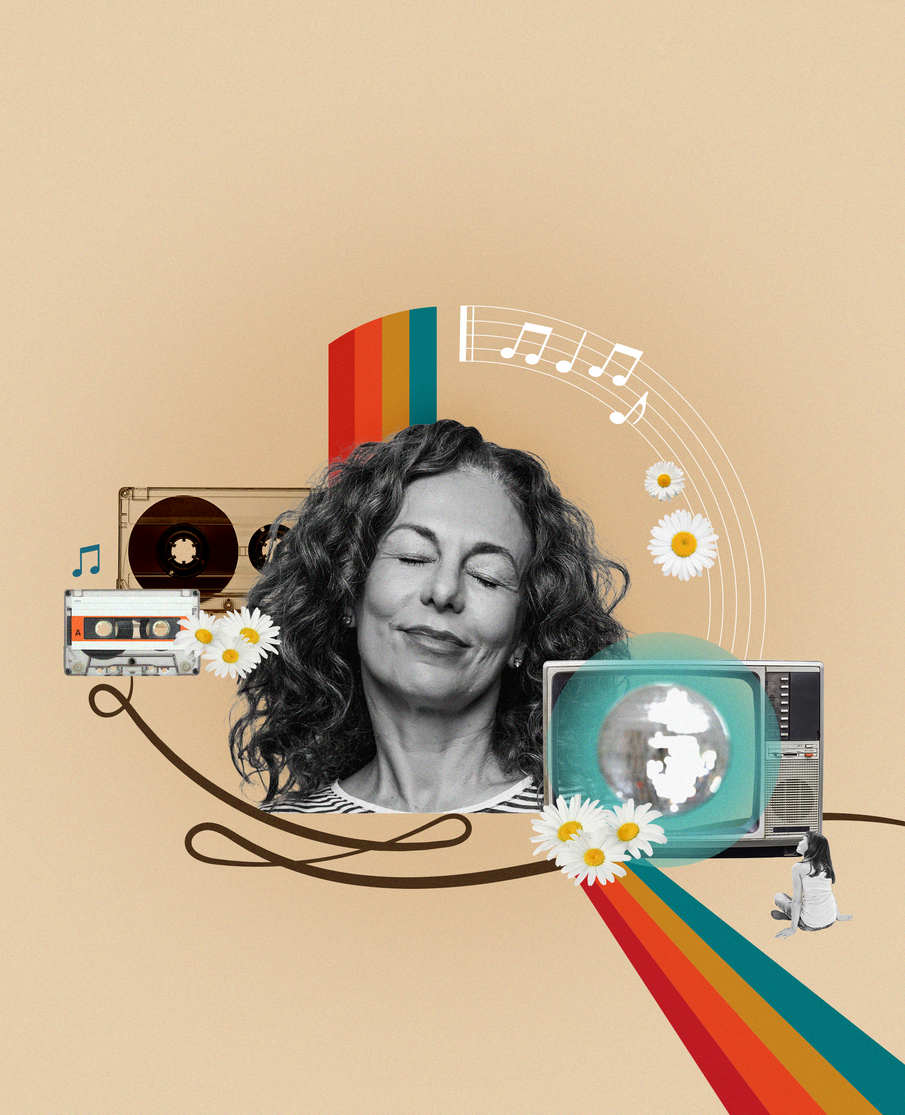Join us as we step back in time and explore how harnessing a sense of nostalgia can support our wellbeing
It’s in the scent of the perfume your mum used to wear, it’s mixed in with the taste of your favourite homemade meal, it sounds like that track that could be heard blaring from your teenage bedroom, and it looks like the skyline from the personal pilgrimages you’ve made throughout your life. Nostalgia creeps up on us, stirring us emotionally, reminding us of the places that we’ve been, and of the journey still ahead of us.
Each of us will experience it in different ways, but the science is there to support this phenomenon’s powerful force, for all of us. More than a decade of research from the University of Southampton has shown that nostalgia can counteract loneliness, boredom, and anxiety, as well as make us more generous to strangers. It can improve our relationships and, incredibly, can even make us feel physically warmer.
And, this past year, it appears we’ve been pondering the past more than ever. Spotify saw a 54% rise in listeners making nostalgic playlists, and a Radio Times survey found that 64% of respondents said they’d rewatched a series in lockdown, with 43% watching nostalgic shows for comfort.
So, what is it about journeying back in time that is so soothing, and how can we manage this bittersweet emotion when the past isn’t always a perfect picture?
A trip down memory lane
From the start of lockdown, each Sunday evening, Father Lee Taylor – Vicar of Llangollen, in Wales – could be found sitting at his piano, ready for a weekly livestream, aptly named ‘An evening of pure nostalgia’. In a regular singalong enjoyed by people across the world, Father Taylor performed hymns from Sunday school, Victorian music hall songs, and the songs that “people remember hearing while sitting on grandma’s knee”.
“At the beginning of the pandemic, there was much fear and uncertainty about the future,” Father Taylor says, as he reflects on those early days. “Many people, especially the elderly and vulnerable, felt they were being plunged into the darkness of isolation, and cut off from the world. We all need an anchor to give us a sense of stability and security during turbulent times.”
For him, music was that anchor. “It is incredibly evocative, and can transport us back to happier and more certain times. It can trigger personal memories, and it can help us recall people, places, and events from our past – the memories can come flooding back to us in an instant.”
It’s this particular power that Father Taylor believes is the reason why his livestreams took off, each one garnering comments such as, “This song means so much to me. It has taken me back to my childhood,” “This has brought back so many wonderful memories of my grandparents”, “I haven’t sung this for many years”.
Reminiscent of studies which found that music has the ability to unlock memories in dementia patients in ways that no other form of communication quite can, Father Taylor’s livestreams tapped into this unique force, transporting singers on a journey through time.
“I think people respond well to nostalgia, especially through musical memories, because it makes us feel safe and grounded, giving a strong sense of identity and our formation as we look back to our younger years,” he explains. “It gives us that warm and cosy feeling of being embraced by a long-lost friend. It can also bind us together with others who either share our tastes in music, or are of the same generation as us.”
The story so far
Beyond the specific things that trigger a fond sense of nostalgia – such as music, photos, and foods, to name but a few – reflecting on our personal history can help us to develop better insight into the things that drive us, as well as the hopes and dreams that we still have for the future.
It’s something Helen Hart sees first-hand in her role at memoir writing service SilverWood Books.
“The past is such a personal and important aspect of our lives; it shapes our present, allowing us to identify who we are and how we can be the best version of ourselves,” she explains. “Deliberately reflecting on the past can stir up all kinds of emotions, but it can be healing. Many SilverWood authors creating a memoir enjoy working through past events, reliving them or sorting through memories as they decide how to express what they feel on the page – and that can help them move forward in their lives.”

Helen describes how, for some people, writing a memoir can be like pressing the reset button on their lives, prompting them to dig deep into their needs and desires.
With the help of chronological formats, we might uncover a newfound appreciation for the journeys we have been on, for the challenges we have overcome throughout our lives, the things that we have lived through that, in the end, made us stronger, more compassionate, and fully rounded people. We can track our values systems that guide us forward, and in moments where we feel a bit lost, we can retune into these guiding principles that have always been with us.
Don’t look back in anger
Of course, not every journey is straightforward, and we haven’t always viewed the experience of nostalgia in such a fond light. As counsellor Jeremy Sachs points out when considering this point, in 17th century Switzerland, nostalgia was treated with opium, leeches, and a prescribed walk in the alps, due to its links to melancholy and depression.
Today, if you’re about to go on a trip down memory lane, Jeremy recommends doing so with a degree of caution.
“Nostalgia looks to the past, often simplifying it and looking at it through rose-tinted glasses. This in itself is not a bad thing, however people can get stuck looking back to their past,” Jeremy explains. “This often happens when the pain of what is happening in the present is too overwhelming. This doesn’t mean to say the past was better – rather that nostalgia creates a false, but reassuring, narrative that it was.”
As an example, Jeremy points to how, in early 2020, there was a tendency to compare the Covid-19 crisis to the Blitz.
“In truth, Covid-19 is nothing like the Blitz,” he says. “However, this past experience existed in our societal consciousness (even if we don’t have lived experience of it), and this comparison made sense of something new.”
He explains how this same concept can work on an individual level too: reliving times from our past can help us confirm our idea of ourselves and our connections, and that in turn can make us feel safe and secure.
“As therapists, we’re constantly moving between three time zones: past, present, and future. We look to the relationships in our past in order to make sense of current or future ones.
“However, we can get stuck in the past, regretting past events, and believing ‘if only things had been different’ we could find happiness in the present.”
Those kinds of thought spirals can be difficult to break free of, but the key is to spot when you might be caught in one. Spend some time reflecting on the relationship you have with the past, and ask yourself: are there things that you need to let go of in order to thrive in the future?
When all’s said and done
Human beings are fascinated by the passing of time – we’ve been recording it, celebrating it, and predicting it since, well, the start of time – and many of us are sentimental creatures by nature. But, as with anything, the past is best served up in equal measures, with an appreciation for the present and the future.
Tap into this unique element of the human experience, connect with those you love the most, reminisce on the things that have brought you happiness, and celebrate the hurdles you overcame – while knowing that there is still so much more to come on the horizon.
To find out more about how nostalgia can benefit your wellbeing, or to connect with a counsellor like Jeremy, visit counselling-directory.org.uk
Hero Image | Artwork by Charlotte Reynall


Comments